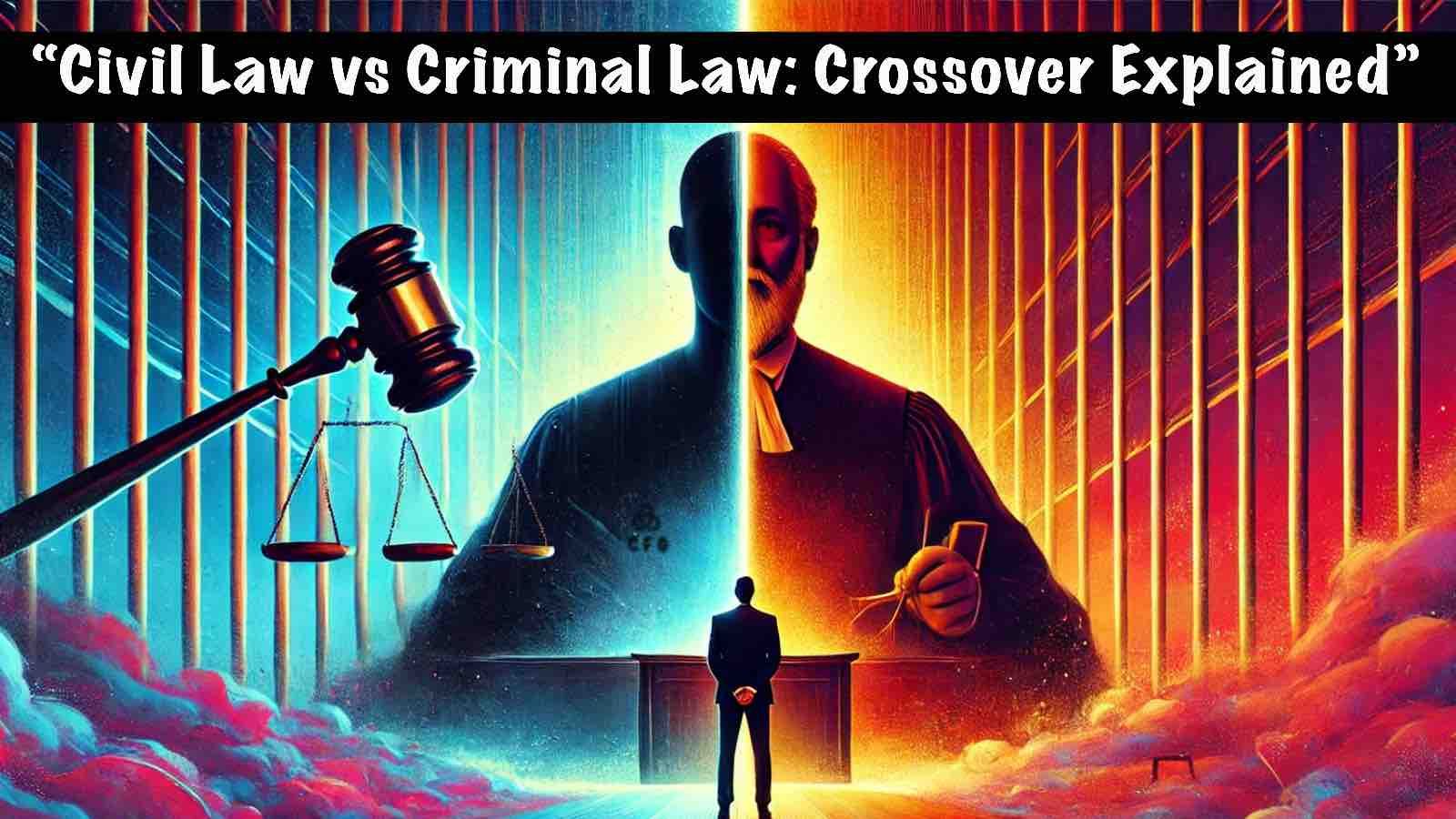Civil Law & Criminal Law the Crossover Explained?
When Civil Law Becomes Criminal: The Legal Power of Court Orders
In the UK, the legal boundary between civil and criminal law is not always as clear-cut as people assume. A court order issued in a civil case can, if breached, result in criminal penalties.
This is enshrined in the Contempt of Court Act 1981 (Statutory Law):
• Section 14 (1) of the Contempt of Court Act 1981 states that a court has the power to impose imprisonment for contempt, confirming its criminal nature.
This is because such orders carry the full authority of the courts and are legally binding, meaning that disobedience is not just an act of defiance but, in many cases, a criminal offence.
This crossover is particularly evident in cases involving injunctions and restraining orders, where an individual is ordered to stay away from another person. While such orders are often issued in civil proceedings, breaching them can lead to arrest, prosecution, and even imprisonment.
From Civil Order to Criminal Offence
To illustrate how a civil case can lead to criminal consequences, consider a typical scenario:
A woman subjected to stalking applies to the court for an injunction to prevent the stalker from contacting her or approaching her home. This injunction, granted under the Protection from Harassment Act 1997, is a civil court order. At this stage, the legal process is civil—the order does not, by itself, involve any criminal punishment.
However, if the stalker ignores the order and turns up at the victim’s home, the legal landscape changes. This is no longer a simple civil dispute. The breach of the injunction is a criminal offence, and the perpetrator can be arrested and prosecuted. This is because the courts treat non-compliance as contempt of court, which is punishable by imprisonment.
The Legal Mechanism Behind the Crossover
This transition from civil to criminal law happens because UK courts have the inherent power to enforce their own rulings. A civil order is not just a request—it is a command backed by the force of law. Disobedience is treated as an attack on the integrity of the legal system, which is why contempt of court is, in itself, a criminally punishable act.
In the case of restraining orders, the law takes an even more direct route. Under the Protection from Harassment Act 1997, a breach of a court-imposed restraining order is automatically a criminal offence, meaning that police can arrest the offender immediately, and prosecution will take place in a criminal court. Sentencing in such cases is severe, often leading to prison time.
Why Breaching a Court Order is a Criminal Act
At its core, the reason breaching a civil court order becomes a criminal matter is simple: it defies the rule of law. The justice system cannot function if individuals are free to ignore legally binding judgments. When someone disregards a court’s order, they are not just harming another person—they are challenging the authority of the court itself.
This is why courts have the power to impose criminal sanctions on those who break their orders. Whether through contempt of court proceedings or the specific criminal offence of breaching a restraining order, the law treats such violations as serious crimes, ensuring that justice is upheld.
The Consequences of Ignoring a Civil Order
For those who believe that a civil case carries no criminal weight, the reality is starkly different. Breaching a court order can result in a criminal record, fines, and imprisonment—outcomes far more severe than any civil penalty.
The law draws no distinction between someone who disregards a court order in a business dispute and someone who ignores an injunction protecting a victim of harassment. In both cases, the courts will act decisively to punish non-compliance and uphold the administration of justice.
Conclusion: The Courts Mean Business
Court orders are not optional suggestions—they are legally binding directives that carry the full force of the law. Those who ignore them do so at their peril. The moment a person wilfully defies a civil order, they enter the realm of criminal law, where penalties are swift and severe.
For anyone on the receiving end of a restraining order or an injunction, the message is clear: comply, or face the consequences.
Well, that’s all for now. But until our next article, please stay tuned, stay informed, but most of all stay safe, and I’ll see you then.Well, that’s all for now. But until our next article, please stay tuned, stay informed, but most of all stay safe, and I’ll see you then.



